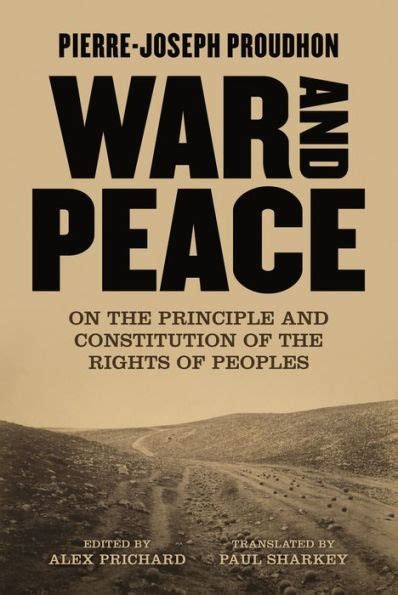Anarchy by Errico Malatesta
£4.20
This now classic work was first published in 1891 and has been in continual demand ever since. Translated from the original Italian and with an introduction be Vernon Richards. This is a new pocket book version from Freedom Press.
Description
Anarchy is a word that comes from the Greek, and signifies, strictly speaking, “without government”: the state of a people without any constituted authority.
Before such an organization had begun to be considered possible and desirable by a whole class of thinkers, so as to be taken as the aim of a movement (which has now become one of the most important factors in modern social warfare), the word “anarchy” was used universally in the sense of disorder and confusion, and it is still adopted in that sense by the ignorant and by adversaries interested in distorting the truth.
We shall not enter into philological discussions, for the question is not philological but historical. The common interpretation of the word does not misconceive its true etymological signification, but is derived from it, owing to the prejudice that government must be a necessity of the organization of social life, and that consequently a society without government must be given up to disorder, and oscillate between the unbridled dominion of some and the blind vengeance of others.
The existence of this prejudice and its influence on the meaning that the public has given to the word is easily explained.
Man, like all living beings, adapts himself to the conditions in which he lives, and transmits by inheritance his acquired habits. Thus, being born and having lived in bondage, being the descendant of a long line of slaves, man, when he began to think, believed that slavery was an essential condition of life, and liberty seemed to him impossible. In like manner, the workman, forced for centuries to depend upon the goodwill of his employer for work, that is, for bread, and accustomed to see his own life at the disposal of those who possess the land and capital, has ended in believing that it is his master who gives him food, and asks ingenuously how it would be possible to live, if there were no master over him?
In the same way, a man whose limbs had been bound from birth, but who had nevertheless found out how to hobble about, might attribute to the very bands that bound him his ability to move, while, on the contrary, they would diminish and paralyze the muscular energy of his limbs.
If then we add to the natural effect of habit the education given to him by his master, the parson, the teacher, etc., who are all interested in teaching that the employer and the government are necessary, if we add the judge and the policeman to force those who think differently – and might try to propagate their opinion – to keep silence, we shall understand how the prejudice as to the utility and necessity of masters and governments has become established. Suppose a doctor brought forward a complete theory, with a thousand ably invented illustrations, to persuade the man with bound limbs that, if his limbs were freed, he could not walk, or even live. The man would defend his bands furiously and consider anyone his enemy who tried to tear them off.
Thus, if it is believed that government is necessary and that without government there must be disorder and confusion, it is natural and logical to suppose that anarchy, which signifies absence of government, must also mean absence of order.
Nor is this fact without parallel in the history of words. In those epochs and countries where people have considered government by one man (monarchy) necessary, the word “republic” (that is, the government of many) has been used precisely like “anarchy,” to imply disorder and confusion. Traces of this meaning of the word are still to be found in the popular languages of almost all countries.
When this opinion is changed, and the public are convinced that government is not necessary, but extremely harmful, the word “anarchy,” precisely because it signifies “without government,” will become equal to saying “natural order, harmony of needs and interests of all, complete liberty with complete solidarity.”
Therefore, those are wrong who say that anarchists have chosen their name badly, because it is erroneously understood by the masses and leads to a false interpretation. The error does not come from the word, but from the thing. The difficulty which anarchists meet in spreading their views does not depend upon the name they have given themselves, but upon the fact that their conceptions strike as all the inveterate prejudices which people have about the function of government, or “the state,” as it is called.
Before proceeding further, it will be well to explain this last word (the “State”) which, in our opinion, is the real cause of much misunderstanding.
Anarchists generally make use if the word “State” to mean all the collection of institutions, political, legislative, judicial, military, financial, etc., by means of which management of their own affairs, the guidance of their personal conduct, and the care of ensuring their own safety are taken from the people and confided to certain individuals, and these, whether by usurpation or delegation, are invested with the right to make laws over and for all, and to constrain the public to respect them, making use of the collective force of the community to this end.
In this case the word “State” means “government,” or, if you like, it is the abstract expression of which government is the personification. Then such expressions as “Abolition of the State,” or “Society without the State,” agree perfectly with the conception which anarchists wish to express of the destruction of every political institution based on authority, and of the constitution of a free and equal society, based upon harmony of interests, and the voluntary contribution of all to the satisfaction of social needs.
However, the word “State” has many other meanings, and among these some that lend themselves to misconstruction, particularly when used among men whose sad social position has not afforded them leisure to become accustomed to the subtle distinction of scientific language, or, still worse, when adopted treacherously by adversaries, who are interested in confounding the sense, or do not wish to comprehend it. Thus the word “State” is often used to indicate any given society, or collection of human beings, united on a given territory and constituting what is called a “social unit,” independently of the way in which the members of the said body are grouped, or of the relations existing between them. “State” is used also simply as a synonym for “society.” Owning to these meanings of the word, our adversaries believe, or rather profess to believe, that anarchists wish to abolish every social relation and all collective work, and to reduce man to a condition of isolation, that is, to a state worse than savagery.
By “State” again is meant only the supreme administration of a country, the central power, as distinct from provincial or communal power, and therefore others think that anarchists wish merely for a territorial decentralization, leaving the principle of government intact, and thus confounding anarchy with cantonical or communal government.
Finally, “State” signifies “condition, mode of living, the order of social life,” etc., and therefore we say, for example, that it is necessary to change the economic state of the working classes, or that the anarchical State is the only State founded on the principles of solidarity, and other similar phrases. So that if we say also in another sense that we wish to abolish the State, we may at once appear absurd or contradictory.
For these reasons, we believe that it would be better to use the expression “abolition of the State” as little as possible, and to substitute for it another, clearer, and more concrete – “abolition of government.”
The latter will be the expression used in the course of this essay.
We have said that anarchy is society without government. But is the suppression of government possible, desirable, or wise? Let us see.
What is the government? There is a disease of the human mind, called the metaphysical tendency, that causes man, after he has by a logical process abstracted the quality from an object, to be subject to a kind of hallucination that makes him take the abstraction for the real thing. This metaphysical tendency, in spite of the blows of positive science, has still strong root in the minds of the majority of our contemporary fellowmen. It has such influence that many consider government an actual entity, with certain given attributes of reason, justice, equity, independent of the people who compose the government.
For those who think in this way, government, or the State, is the abstract social power, and it represents, always in the abstract, the general interest. It is the expression of the rights of all and is considered as limited by the rights of each. This way of understanding government is supported by those interested, to whom it is an urgent necessity that the principle of authority should be maintained and should always survive the faults and errors of the persons who exercise power.
For us, the government is the aggregate of the governors, and the governors – kings, presidents, ministers, members of parliament, and what not – are those who have the power to make laws regulating the relations between men, and to force obedience to these laws. They are those who decide upon and claim the taxes, enforce military service, judge and punish transgressors of the laws. They subject men to regulations, and supervise and sanction private contracts. They monopolize certain branches of production and public services, or, if they wish, all production and public service. They promote or hinder the exchange of goods. They make war or peace with governments of other countries. They concede or withhold free trade and many things else. In short, the governors are those who have the power, in a greater or lesser degree, to make use of the collective force of society, that is, of the physical, intellectual, and economic force of all, to oblige each to their (the governors’) wish. And this power constitutes, in our opinion, the very principle of government and authority.
But what reason is there for the existence of government?
Please note some of the books we have been getting from Freedom Press (including this title) are the best of the fire damaged stock. The books may be slightly discoloured on the outside and smell a bit burnt but we believe they should not be wasted or purely cosmetic reasons and we want to help Freedom survive the arson attack by fascists. Consider such copies as special “solidarity copies” as opposed to “soiled”!
Additional information
| Weight | 0.091000 kg |
|---|





